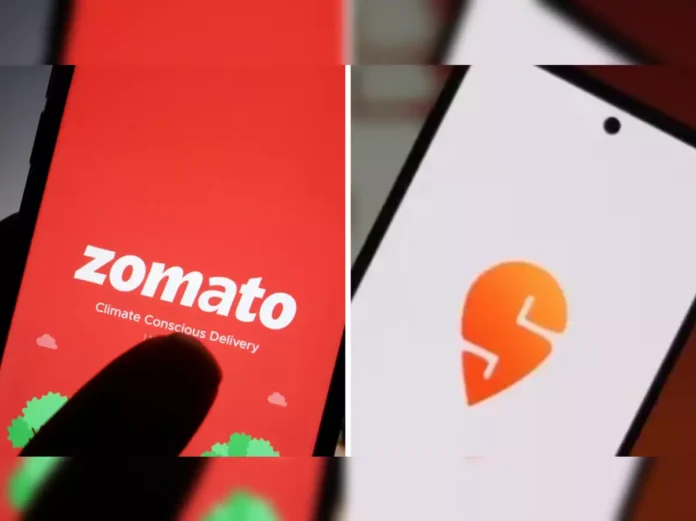NRAI Opposes Zomato and Swiggy’s 10-Minute Delivery initiative, a move that has sparked significant debate within the foodservice industry. The National Restaurant Association of India (NRAI) has expressed its concern over the launch of new services by the two major food delivery platforms that promise to make and deliver food within 10-15 minutes. The association argues that these services not only undermine restaurant businesses but also encourage private labeling practices that can have long-term negative effects on the industry.
The Launch of 10-Minute Food Delivery
Zomato and Swiggy, two of India’s largest food delivery platforms, have recently made headlines with their decision to launch separate apps designed for delivering food within an exceptionally short time frame of 10-15 minutes. The companies argue that the quick delivery service caters to the growing demand for fast food and provides a competitive edge in the crowded online food delivery market.
However, the move has not been well received by everyone. Restaurant owners and operators, especially those who rely heavily on these platforms to reach their customers, are voicing concerns over the implications this new service could have on their businesses.
NRAI’s Objection to Private Labelling
The National Restaurant Association of India (NRAI) has been particularly vocal about the dangers posed by these 10-minute delivery services. One of the primary concerns raised by the association is the practice of private labeling, where food is prepared by the platforms themselves and sold under the restaurant’s name.
Private labeling, according to the NRAI, cannibalizes the business of independent restaurants. When food delivery platforms start cooking and selling food under their own brand, it diminishes the restaurant’s ability to control its offerings and profit margins. Essentially, the platforms are taking over the entire food value chain, from production to delivery, leaving restaurants with less autonomy.
The NRAI’s objection stems from the fact that these platforms already charge restaurants significant commissions for listing and delivery services. By introducing their own cooking facilities and branding, the platforms are effectively competing with the very restaurants they rely on to supply food for delivery. This creates an unfair environment where platforms can profit from both selling their own food and charging restaurants for delivery services.
The Impact on Restaurant Businesses
The 10-minute delivery service model could have a significant impact on restaurants, particularly smaller establishments and independent operators who do not have the scale or resources to compete with the giant food delivery platforms. These businesses already operate under thin margins, and the added pressure of competing with the platforms themselves could lead to closures or financial instability.
Moreover, the NRAI has argued that the practice of private labeling could result in the homogenization of food offerings, where the variety and creativity of individual restaurants are undermined. Restaurants would essentially lose their identity, as customers might not be able to distinguish between dishes prepared by independent chefs and those cooked by platforms’ kitchens.
The quick delivery model also raises questions about food quality and safety. The NRAI believes that rushing food production and delivery in such a short window could compromise the quality of food being served, which is a critical factor for restaurants seeking to build long-term customer loyalty.
Regulatory and Legal Challenges
The NRAI has indicated that it is considering approaching the Competition Commission of India (CCI) over the issue. The body believes that the business practices of Zomato and Swiggy could potentially violate antitrust laws, particularly regarding unfair competition and market dominance.
If the CCI gets involved, it could lead to an investigation into whether the practices of the food delivery platforms are anti-competitive. The association is arguing that these practices give platforms an undue advantage by allowing them to control multiple stages of the food service industry.
The concerns regarding private labeling are compounded by the fact that both Zomato and Swiggy are among the largest players in the food delivery sector in India, further intensifying the fear that smaller players might be pushed out of the market.
The Consumer Perspective
From the consumer’s point of view, the promise of 10-minute delivery may seem appealing, especially in an increasingly fast-paced world. People want convenience and speed, and the idea of having their food delivered almost instantly is enticing.
However, critics argue that such services may lead to a decline in food quality. The rush to meet such stringent delivery times could lead to food being prepared quickly but not necessarily well. For consumers who value the experience of dining out or enjoying a meal from their favorite restaurant, this could be a disappointing trade-off.
The Future of Food Delivery
As the food delivery landscape continues to evolve, the competition between platforms and restaurants is intensifying. Zomato and Swiggy are already experimenting with various delivery models, and their 10-minute food delivery services represent the latest in a series of innovations aimed at capturing more of the market.
However, the concerns raised by the NRAI highlight the need for a more balanced approach. While convenience and speed are important, it is equally crucial to protect the interests of restaurants that form the backbone of the food service industry.
As the debate continues, one thing is clear: the future of food delivery in India will be shaped by the intersection of technology, business practices, and consumer demands. Balancing the needs of platforms, restaurants, and customers will be key to creating a sustainable and fair food delivery ecosystem.


/afaqs/media/media_files/2025/01/10/3P9HIIYtqYRifwNaTpI4.jpg)
